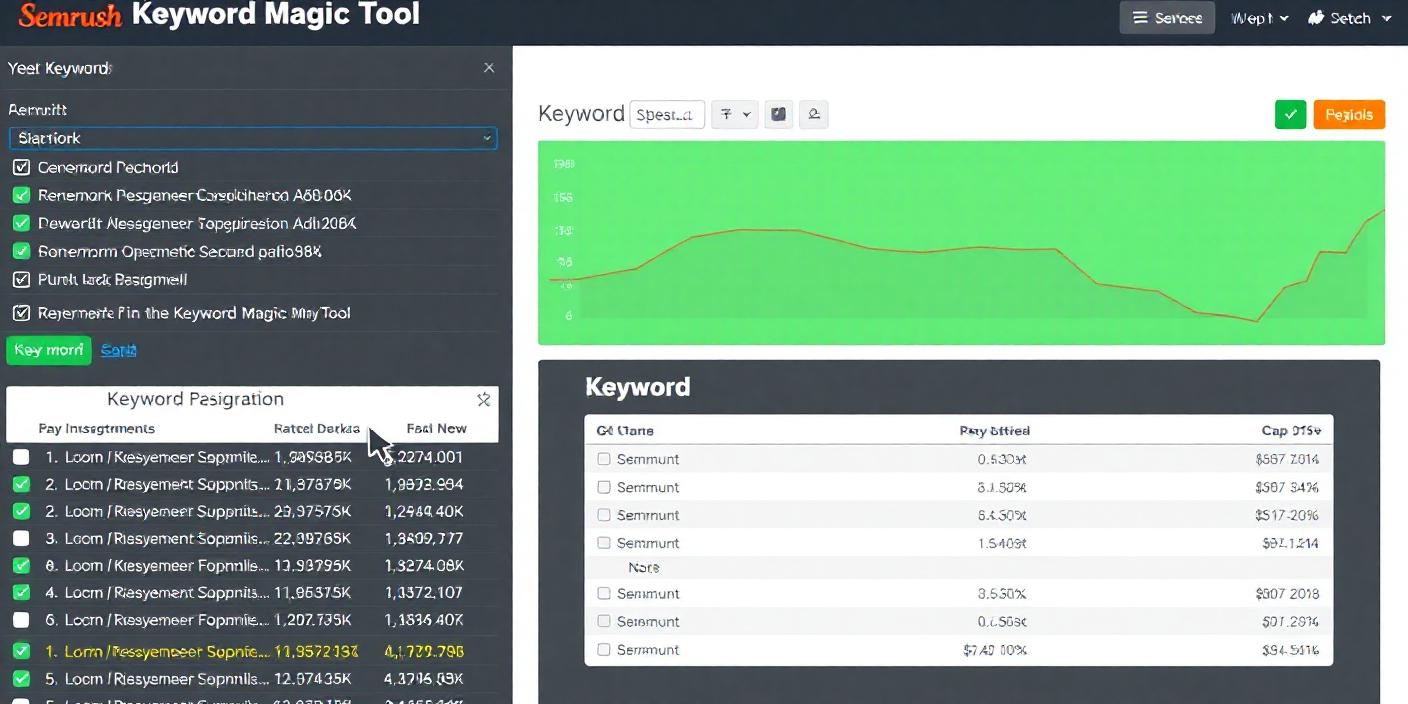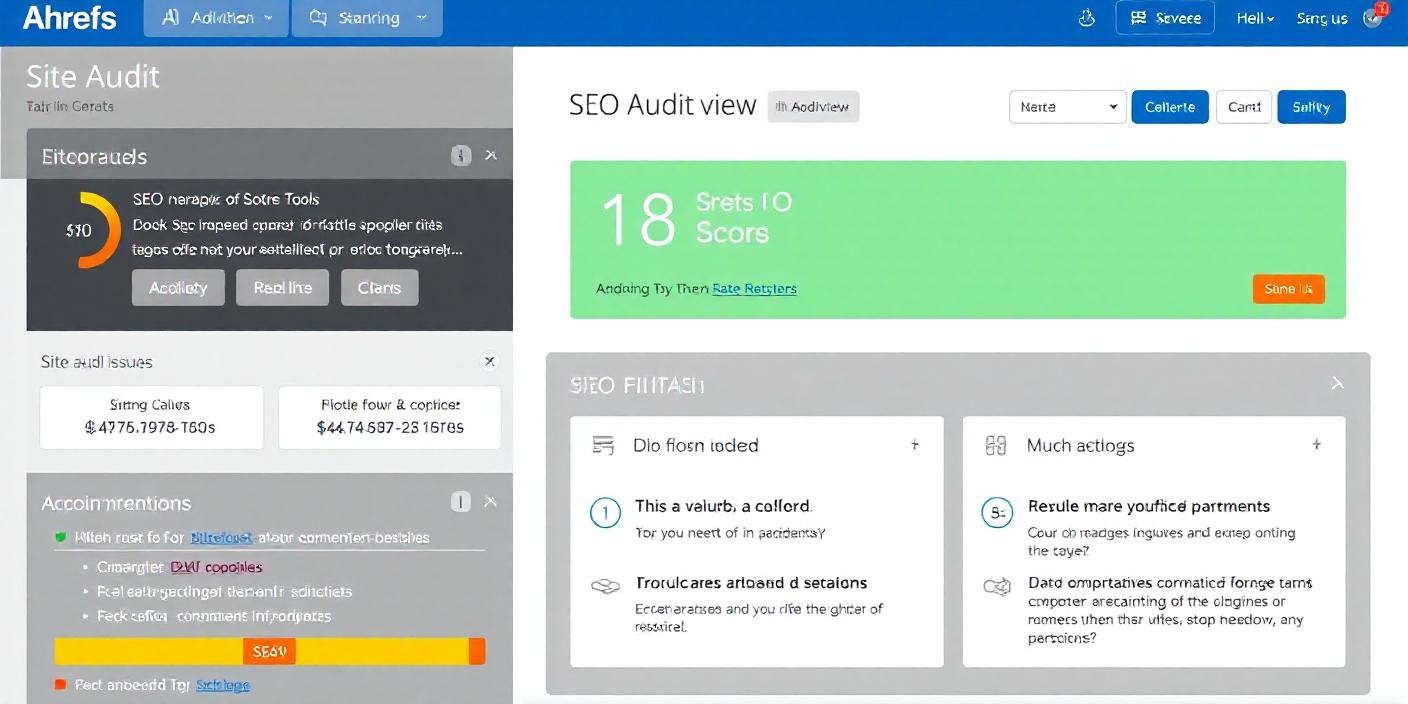On-Page SEO Tools: Essential Resources for Optimizing Your Website
 Vishal Sahani
Vishal Sahani
Harness the Power of On-Page SEO Tools
In the ever-evolving landscape of digital marketing, Search Engine Optimization (SEO) stands tall as the cornerstone of online visibility and success. Among the various facets of SEO, on-page optimization reigns supreme, serving as the foundation for crafting a website that resonates with both users and search engines. To navigate the intricacies of on-page SEO, a suite of specialized tools has emerged, empowering marketers and website owners to fine-tune their digital presence and achieve higher search rankings. In this comprehensive exploration, we delve into the realm of on-page SEO tools, unraveling their essential role and shedding light on the must-have resources that pave the way for optimized websites.
Understanding On-Page SEO
Before we embark on our journey through the world of on-page SEO tools, let's establish a clear understanding of on-page SEO itself. In essence, on-page SEO encompasses all the optimization efforts that take place directly on your website's pages. It involves strategically refining various elements, including content, HTML source code, and website architecture, to enhance its relevance and authority in the eyes of search engines. By meticulously addressing on-page factors, you not only improve your website's visibility in search results but also create a user-friendly experience that fosters engagement and conversions.
The Significance of On-Page SEO Tools
In the pursuit of on-page optimization excellence, specialized tools emerge as invaluable allies. These tools equip you with the insights and capabilities necessary to conduct comprehensive audits, identify areas for improvement, and implement effective optimization strategies. By leveraging the power of on-page SEO tools, you can:
Gain a Deeper Understanding of Your Website: Delve into the technical intricacies of your website, uncovering hidden issues that may be hindering its performance.
Conduct Thorough Keyword Research: Identify high-value keywords relevant to your industry and target audience, enabling you to create content that resonates.
Optimize Content for Relevance and Engagement: Craft compelling, informative content that aligns with search intent and captivates your readers.
Streamline Technical SEO: Address technical aspects such as site speed, mobile-friendliness, and structured data implementation to enhance user experience.
Monitor Progress and Measure Success: Track keyword rankings, organic traffic, and other key performance indicators to gauge the effectiveness of your optimization efforts.
Essential On-Page SEO Tools

Now that we've established the significance of on-page SEO tools, let's explore some of the must-have resources that empower you to elevate your website's performance.
1. Google Search Console

At the forefront of on-page SEO tools stands Google Search Console, a free and indispensable resource offered by Google itself. This powerful tool provides valuable insights into how Google views your website, enabling you to:
Monitor Indexing Status: Ensure that your website's pages are being properly indexed by Google, making them eligible to appear in search results.
Identify Crawl Errors: Uncover issues that may be preventing Google from accessing and indexing your website's content.
Submit Sitemaps: Provide Google with a roadmap of your website's structure, facilitating efficient crawling and indexing.
View Search Queries: Gain insights into the keywords and phrases users are searching for to find your website.
Analyze Click-Through Rates (CTRs): Assess the effectiveness of your title tags and meta descriptions in attracting clicks from search results.
2. Semrush

Semrush reigns as a comprehensive SEO toolkit, offering a plethora of features to streamline your on-page optimization efforts. With Semrush, you can:
Conduct In-Depth Keyword Research: Uncover high-potential keywords, analyze their search volume and competition, and identify opportunities for targeting.
Perform Site Audits: Identify technical issues, broken links, and other on-page factors that may be impacting your website's performance.
Track Keyword Rankings: Monitor your website's position in search results for target keywords, allowing you to gauge progress and identify areas for improvement.
Analyze Backlink Profile: Gain insights into your website's backlink portfolio, identify opportunities for building high-quality links, and disavow harmful ones.
Conduct Competitor Analysis: Uncover your competitors' strategies, identify their strengths and weaknesses, and gain a competitive edge.
3. Ahrefs

Ahrefs stands tall as another powerhouse in the realm of SEO tools, offering a robust suite of features to elevate your on-page optimization game. With Ahrefs, you can:
Explore Keyword Opportunities: Discover untapped keyword potential, analyze search volume and keyword difficulty, and identify lucrative niches.
Conduct Content Gap Analysis: Uncover content topics your competitors are ranking for but you aren't, enabling you to create content that fills the gaps.
Perform Backlink Audits: Analyze your website's backlink profile, identify toxic links, and disavow them to protect your website's reputation.
Track Keyword Rankings: Monitor your website's performance in search results for target keywords, assess progress, and identify areas for improvement.
Conduct Competitor Research: Analyze your competitors' backlinks, organic search traffic, and content strategies to gain valuable insights.
4. Screaming Frog

Screaming Frog emerges as a technical SEO powerhouse, providing in-depth website crawling and analysis capabilities. With Screaming Frog, you can:
Crawl Your Website: Simulate how search engines crawl your website, uncovering technical issues, broken links, and redirect chains.
Analyze On-Page Elements: Extract and analyze data related to title tags, meta descriptions, headings, images, and other on-page factors.
Identify Duplicate Content: Uncover instances of duplicate content that may be diluting your website's authority and impacting its search rankings.
Find Broken Links: Identify internal and external links that are no longer functioning, leading to a poor user experience and potential search ranking penalties.
Generate XML Sitemaps: Create and submit XML sitemaps to search engines, providing them with a roadmap of your website's structure.
5. Yoast SEO

Yoast SEO reigns as a popular WordPress plugin that simplifies on-page optimization for WordPress websites. With Yoast SEO, you can:
Optimize Content for Target Keywords: Analyze your content's readability, keyword density, and other on-page factors to ensure it aligns with SEO best practices.
Generate XML Sitemaps: Automatically create and submit XML sitemaps to search engines, ensuring your website's pages are discoverable.
Manage Title Tags and Meta Descriptions: Craft compelling title tags and meta descriptions that entice users to click through from search results.
Control Robots.txt and .htaccess Files: Manage access to your website's content by search engines and other bots.
Integrate with Google Search Console: Connect Yoast SEO with Google Search Console to gain additional insights and streamline your optimization efforts.
Optimizing Your Website with On-Page SEO Tools
Armed with these essential on-page SEO tools, you can embark on a journey of optimizing your website for both users and search engines. Let's delve into some key optimization strategies you can implement:
1. Conduct a Comprehensive Website Audit
Begin your optimization journey by conducting a thorough website audit using tools like Semrush, Ahrefs, or Screaming Frog. Identify technical issues, broken links, duplicate content, and other factors that may be hindering your website's performance. Address these issues promptly to ensure a seamless user experience and optimal search engine crawlability.
2. Perform In-Depth Keyword Research
Identify high-value keywords relevant to your industry and target audience using tools like Semrush or Ahrefs. Analyze search volume, competition, and user intent to select keywords that offer the best opportunities for attracting organic traffic and achieving high search rankings.
3. Optimize Content for Relevance and Engagement
Craft compelling, informative content that aligns with search intent and captivates your readers. Utilize tools like Yoast SEO to analyze your content's readability, keyword density, and other on-page factors. Ensure your content is well-structured, visually appealing, and provides value to your audience.
4. Streamline Technical SEO
Address technical aspects such as site speed, mobile-friendliness, and structured data implementation to enhance user experience and search engine visibility. Utilize tools like Google Search Console and Screaming Frog to identify and rectify technical issues that may be impacting your website's performance.
5. Build High-Quality Backlinks
Earn backlinks from reputable websites in your industry to establish your website's authority and credibility. Utilize tools like Semrush and Ahrefs to identify backlink opportunities, analyze your competitors' backlink profiles, and disavow harmful links.
6. Monitor Progress and Measure Success
Regularly track your website's performance using tools like Google Search Console, Semrush, and Ahrefs. Monitor keyword rankings, organic traffic, bounce rates, and other key performance indicators to gauge the effectiveness of your optimization efforts and identify areas for further improvement.
Conclusion
In the dynamic realm of digital marketing, on-page SEO stands as an indispensable pillar for achieving online visibility and success. By leveraging the power of specialized tools, you can gain a deeper understanding of your website, conduct thorough keyword research, optimize content for relevance and engagement, streamline technical SEO, and monitor progress towards your goals. Embrace the essential on-page SEO tools discussed in this exploration, and embark on a journey of optimizing your website to its full potential. Remember, consistent effort, data-driven insights, and a commitment to providing value to your audience will pave the way for sustainable growth and success in the competitive digital
Subscribe to my newsletter
Read articles from Vishal Sahani directly inside your inbox. Subscribe to the newsletter, and don't miss out.
Written by

Vishal Sahani
Vishal Sahani
I'm a freelance digital marketing and SEO expert dedicated to helping businesses thrive online. From crafting compelling content to building high-performing WordPress websites and managing social media, I offer a comprehensive suite of services designed to boost your visibility, engage your audience, and drive tangible results. Let's transform your digital presence and achieve your business goals together.